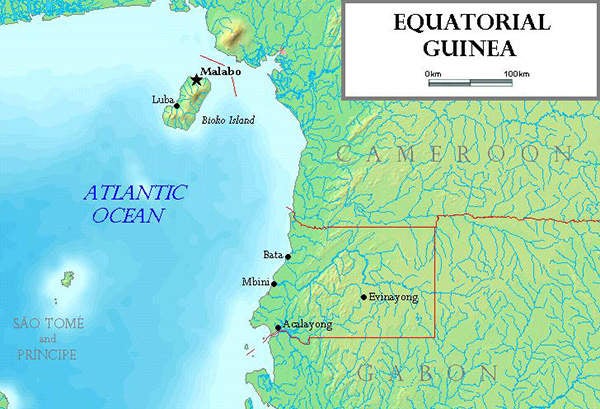The Alen discovery, once known as Belinda, is a liquid-rich gas and condensate field located in Block O, about 32km off the east coast of Bioko Island in Equatorial Guinea. The discovery is situated in a water depth of about 76m.
The field has been developed with an investment of $1.37bn. Production began in July 2013 and is projected to flow at a gross rate of 37,500 barrels of oil a day (bpd). Production of natural gas is projected to be up to 440 million metric cubic feet a day (MMcfd).
Ownership of Block O in Equatorial Guinea
Noble Energy, which is an independent energy firm with interests in oil and natural gas exploration and production, is the technical operator of Block O. Its net working interest in the project is 45%.
The national oil company of Equatorial Guinea, GEPetrol has a 20% participating interest and a 10% carried interest. Glencore Exploration is the third partner and owns a working interest of 25%.
Noble Energy and its partners in the Block O development had sanctioned the project in December 2010.
Discovery and exploration of the Alen field
The Alen field was discovered in October 2005. The discovery well, O-1, was drilled to a depth of 3,158m. It was the first discovery made in the Equatorial Guinea territory of the Douala Basin, offshore of Bioko Island.
The discovery well flowed the maximum rate of 24MMcfd of natural gas and 1,225bpd of condensate.
The second exploration well, drilled to a total depth of 3,852m in April 2007, did not indicate the presence of recoverable hydrocarbons. As a result, it was plugged and abandoned.
In February 2009, Noble Energy declared the presence of oil at the Carmen prospect in Block O. It was the first time that an oil discovery was made in Block O.
Drilled to a total depth of 3,520m, the oil discovery well (O-5) encountered approximately eight metres of net oil pay and four metres of net gas pay.
Another oil discovery was revealed in November 2011. It is located in the Carla Prospect of Block O. The Alen 1-G1 pilot well encountered about 9.9 metres of net oil pay.
Development plan for the oil and gas project
The field development plan for Alen discovery was approved by the Ministry of Mines, Industry and Energy of the Republic of Equatorial Guinea in January 2011.
The sanctioned plan called for the drilling of up to six subsea wells tied to a fixed platform. Three of them are production wells and the other three are natural gas injection wells.
Development drilling was started in late 2011 by Atwood Hunter semi-submersible rig and Atwood Aurora jack-up vessel.
The associated condensate is initially sent to the platform, where it is separated into liquid and gas. The stripped gas is re-injected into the wells. The condensate liquids are transported via a pipeline to the Aseng floating production, storage and offloading vessel (FPSO), which is deployed in Block I about 24km to the south.
Infrastructure of Noble Energy’s Alen field
Infrastructure for the Noble Energy-operated Alen field includes two platforms. One is a well head platform while the other is a central processing platform (CPP). They are connected by a bridge.
The condensate processing facility or the CPP was deployed in about 85 metres of water. It is designed to process 440MMcfd of natural gas and 40,000bpd of condensate.
The facility has been purposefully designed to be exploited as a gathering hub. The ultimate handling capacity of the platform can reach up to 750MMcfd.
The platform is fitted with a 610mm riser so that it can easily be connected to the future gas sales line.
Contracts awarded for the liquid-rich field
Front-end engineering design (FEED) of the Alen project was performed by John Wood Group’s subsidiary, Mustang. The company was contracted in May 2010 to design both the jacket and topsides of the processing platform.
Fabrication, load out and installation assistances for the central production platform, weighing 15,000t, and the 2,000t well head jacket were provided by McDermott.
VersaTech provided pre-commissioning and final commissioning services for the gas field.
Stress Subsea secured a subsea system FEED contract for the Alen project in June 2010.
Cronus Technology supplied the pipeline lead and workforce to the site fabrication team for the project.






